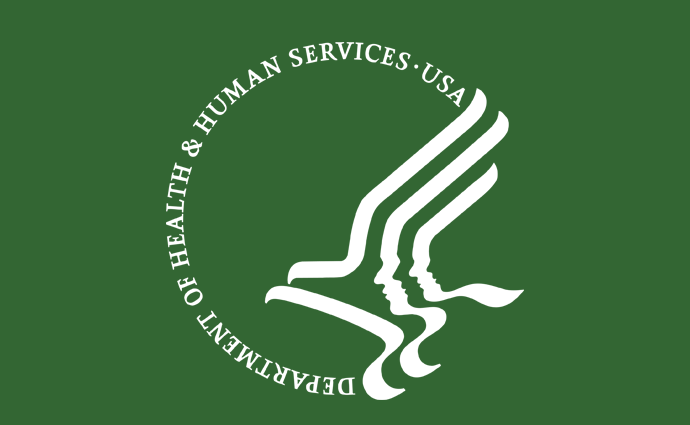HHS Pays Out First Round of CARES Act Funding to Hospitals
HHS is distributing $30B of the $100B in CARES Act funding for healthcare providers using Medicare FFS revenue from 2019, the department announced.

Source: Department of Health & Human Services
- HHS is starting to distribute the more than $100 billion in emergency funding from the Coronavirus Aid, Relief and Economic Security (CARES) Act, according to a recent announcement.
The announcement on Friday stated that hospitals and other healthcare providers have started to receive $30 billion in payments. The first wave of emergency funding will go to hospitals based on Medicare revenue and will be directly deposited into provider bank accounts unless providers normally receive reimbursement via paper check.
For more coronavirus updates, visit our resource page, updated twice daily by Xtelligent Healthcare Media.
President Trump signed the CARES Act in late March, freeing up a historic $2 trillion in emergency funding to stimulate the downward economy and support the healthcare system as it battles the highly contagious novel coronavirus.
Hospitals and providers were promised more than $100 billion in emergency funds to help organizations manage and treat the sudden influx of patients with COVID-19 and offset financial losses due to the postponement or cancelation of elective procedures, which normally drive revenue for healthcare organizations. But the CARES Act did not detail how the funds were to be distributed to providers.
READ MORE: Hospital Stimulus Funds to Pay for Uninsured COVID-19 Treatment
The April 10 announcement from HHS provides more information on how the federal government plans to apportion the funds.
HHS stated that all facilities and providers that received Medicare fee-for-service reimbursements in 2019 will be eligible for the first wave of emergency funds. Payments will also be made to practices that are part of a larger medical group using the group’s central billing office.
The amount will be based on the facility’s or provider’s share of total Medicare fee-for-service reimbursement in 2019, which totaled about $484 billion in 2019, HHS reported.
The federal department advises providers to estimate their emergency funding by dividing their 2019 Medicare fee-for-service reimbursements (excluding those from Medicare Advantage plans) by the total $484 billion in Medicare fee-for-service payments and multiplying that ratio by $30 billion.
CMS Administrator Seema Verma stated in an April 7press briefing that the funding would have “no strings attached,” but HHS pointed out that in order to receive the funds, providers must agree not to seek collection of out-of-pocket payments from COVID-19 patients when the bill is greater than what the patients would have otherwise been responsible for if care had been furnished by an in-network provider.
READ MORE: AHA Asks for an Immediate $25K Per Hospital Bed to Combat COVID-19
HHS started to disperse the funding to hospitals on April 10 using Automated Clearing House (ACH) account information from CMS and UnitedHealth Group, which partnered with HHS to distribute the payments quickly to providers.
“This is not a first come first serve basis because we are basing this on their Medicare revenue. They will get these dollars, so even if it takes a few days, there shouldn’t be any panic in the system as well,” CMS Administrator Verma reassured providers at the press briefing last Tuesday.
“This initial round of funding will begin to give providers on the front lines of the fight against the virus much-needed support and resources,” the American Hospital Association (AHA) stated on its website following HHS’ April 10 announcement.
The funding will also be critical for supporting physician practices, of which 97 percent have experienced a negative financial impact from the novel coronavirus outbreak, the Medical Group Management Association (MGMA) stated.
“These grant funds are crucial in allowing practices to not only treat patients on the front lines, but to keep their doors open for the inevitable surge of healthcare needs post-pandemic,” said Anders Gilberg, senior vice president of government affairs.
READ MORE: How Much Will the COVID-19 Pandemic Cost Hospitals?
But some providers expressed concerns with HHS’ plan to distribute the emergency funding.
“We are eager for this week’s release of $30 billion from the Public Health and Social Services Fund but concerned by the basis for distributing these funds, as it could disadvantage some essential hospitals on the front lines of this crisis,” Bruce Siegel, MD, MPH, president and CEO of America’s Essential Hospitals stated on the association’s website last Tuesday.
“An allocation methodology that consists only of Medicare fee-for-service revenue could tilt the playing field against some essential hospitals, which care for disproportionate numbers of uninsured and Medicaid patients,” he explained. “It is especially concerning because their narrow margins and front-line role mean these hospitals are among those in greatest need of funding support during this public health emergency.”
The AHA also called for “additional targeted relief for hospitals in hot spots, children’s hospitals, rural hospitals, hospitals with a high percentage of payments under Medicare Advantage and hospitals caring for high numbers of Medicaid and uninsured patients need immediate relief.”
CMS Administrator Verma acknowledged that some providers may receive financial support from the government sooner than others because of the Medicare revenue methodology. But her agency’s goal was “getting these dollars out as quickly as possible.”
“We recognize that in terms of getting these dollars out because it’s based on Medicare revenues there are providers out there, pediatricians, children’s hospitals, OBGYNs, even our nursing homes that a lot of their revenue comes from other sources, Medicaid or other payer sources,” she said. “Those organizations will be addressed in the second tranche of funding and we’ll have a priority for these organizations and these types of healthcare providers.”
In the meantime, CMS is providing loans to Medicare providers through its Accelerated and Advance Payment Program. The agency recently expanded the program to include more providers and has distributed over $51 billion in loans to providers struggling during the public health crisis.
